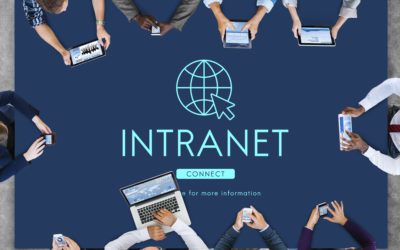 All companies say they value their people. But it’s one thing to say you put people first and quite another to actually act on it.
All companies say they value their people. But it’s one thing to say you put people first and quite another to actually act on it.
These days, no company can afford to fall short on employee engagement, and that’s especially true for tech-oriented companies like Integris. The war for IT talent has become more intense as labor markets tighten. We’re competing for people like never before, while the technical knowledge needed to run our client’s business only gets more complex. At Integris, we’ve made “people first” our core, foundational value. It’s so much more than just a snappy slogan in an employee handbook. When putting people first, we’re willing to put our processes—and our money—where our mouth is.
What does “People First” Mean, anyway?
If we’re doing our job right, “People First” won’t be a thing we say. It will be the sort of thing our customers and employees will feel whenever they’re working with us. How does that play out for us on an average day? Let me give you a few examples.
In the past, companies believed that the customer was king. There’s some truth in that. But the more modern way of thinking about that is the employees are the more critical part of the equation. It’s a philosophy often espoused by business influencers like Richard Branson and others. And its premise is this: if you treat your employees right, they stay longer and are more invested in their work. When they’re appreciated, supported, and given the latitude to do the job right, they will do a better job for the customer. Everybody wins. And that’s good for business, pure and simple.
Here at Integris, our “people first” philosophy starts by making this company an attractive place to work. We offer a few big bonuses in that regard, by:
- Making four weeks of paid vacation standard, offering another two weeks of paid holidays, and a leave policy that recognizes employees have lives to juggle outside work.
- Paying best-in-class salaries
- Giving our employees a path to advancement in a national organization
- Paying for certifications and other educational opportunities so that employees can build their skills
- Building a robust management training program so that managers can grow, and model consistent management processes and expectations
- Creating a culture where harmful or abusive behavior from management, other employees, or our clients is not tolerated
This “walk our talk” set of benefits has helped us ramp up hiring and win the recruiting game. But it’s so much more than that. Everyone benefits when you hire the best people and keep them over time. We’re still a very young company. But with any luck, we can look forward to reaping the benefits from this strategy over the long term.
People First, Before Profits
This value sounds counterintuitive, but let me give you examples of how “people first” has played out for us in practical terms.
Recently, we merged Iconic IT into Integris, nearly doubling our size. With the new employees, the company ended up getting rated differently, and our cost for our healthcare insurance jumped up dramatically. Most companies would have passed this increase on to employees and chalked it up to inflation. But we chose another path. Instead, we’re calculating how much employees paid last year and giving them salary increases to cover the new insurance overages. Will it hurt? Sure. But at the end of the day, employees make decisions about where to work based on their health benefits, and it was important to us that we keep our promises to employees.
As an employer, we also promise employees their workplace will be one where they feel safe and supported. That starts by hiring people and working with clients that share those management values. How does that work? I’ll relay a story from my days running myITPros, which was acquired recently by Integris.
We’d just started working with a new client, and we were very excited about the relationship. Everything looked like it would go well. The COO was our point of contact and shared our thinking on many issues. Unfortunately, when the CEO became involved, things went downhill. It became apparent that the COO did not communicate some critical things to him. The CEO behaved disrespectfully – and was borderline abusive. Soon, storm clouds rolled in over what initially seemed like a golden opportunity. Before long, we decided that although working with the client was attractive from a financial perspective, we simply couldn’t do business with someone whose behavior was so at odds with our principles. We resigned the account the next day.
Because “people first” is so central and visible in our business, it made our decision to part ways a quick one and minimized the negative impacts on both parties. And that saved us a lot of time and money in the long run.
People First: The Three Things Every Employee Needs
The two examples I just shared are just that—examples. To truly make “people first” your company’s core value, you have to gear everything you do towards meeting employee needs. Sure, salaries and benefits and perks are excellent. But really, they’re not always the most prominent piece in the overall employee happiness pie chart. Truly keeping employees happy goes deeper than that. They need opportunities for engagement.
And engagement generally comes down to offering employees these three things.
Autonomy: Leaving people free to come up with great solutions
Putting a lot of rules and restrictions around how people get their jobs done may be helpful in tasks that require mechanical or physical skills. But self-direction is better if you want to motivate people to solve challenging business problems using complex cognitive thinking. This is why, whenever it’s possible or practical, we give people opportunities to take on challenging projects – even if there’s a chance they might fail. We believe people need to be able to use their creativity to solve things, so we give them problems to solve. And when they work out the issues, the result is a tremendous level of satisfaction that has nothing to do with money.
Mastery: Constantly creating opportunities to improve
The principle here is pretty simple. People feel good about themselves when they get good at something. They experience pride and self-respect at having mastered a skill – and that’s a feeling that no amount of financial incentive can inspire. When we invest in management training, security training, vendor training, and more. When our employees master new skills and stay engaged in their work, we get an immeasurable return on that investment. It may not be a return the company can quantify in dollars, but it pays off in higher skills and happier people.
Purpose: Making a difference in the world
Employees who are engaged feel a greater sense of purpose. They see how their accomplishments push the company forward and benefit their clients. And make no mistake about it, what we do at Integris is essential. We’re building the tech foundations that will allow our clients to grow and thrive. We also want our employees to help the communities where we work. Every office can choose its nonprofits to partner with by providing discounted services or donating to causes or events that benefit the community. This involvement is significant for the community and just as beneficial for employees. After all, most people want to feel like their work and effort count for something.
People First: Because Every Employee Counts
People first. It’s a corporate value that we’re trying to bring to life here at Integris. While we’ll never be perfect, it’s a worthy goal we aspire to every day.
We look forward to joining our vendors, clients, and employees on that journey as we continue to grow. It’s an exciting road ahead. Let’s walk it together.



